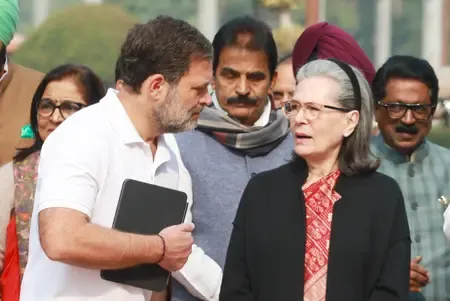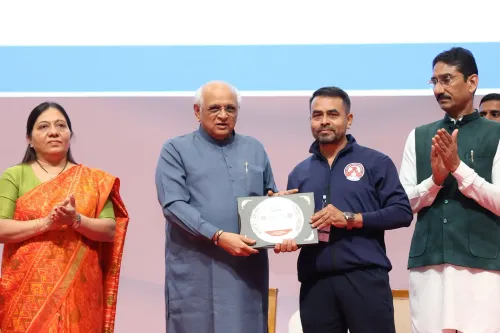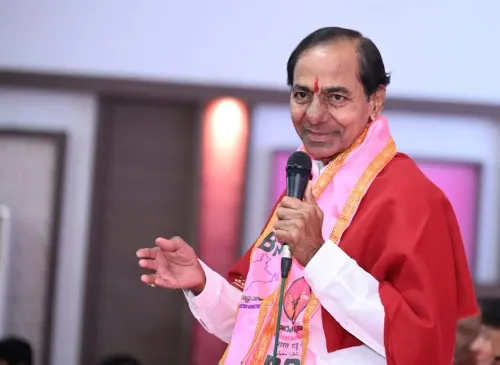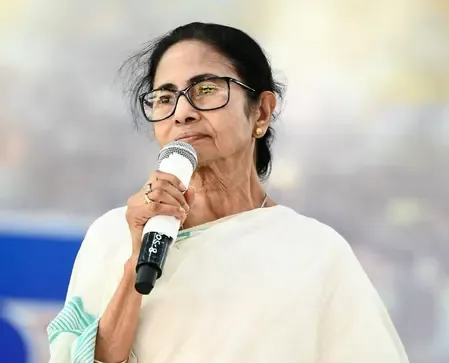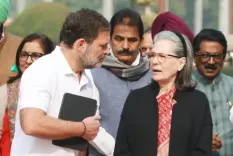Rajasthan CM Highlights Importance of Temples in Upholding Indian Heritage
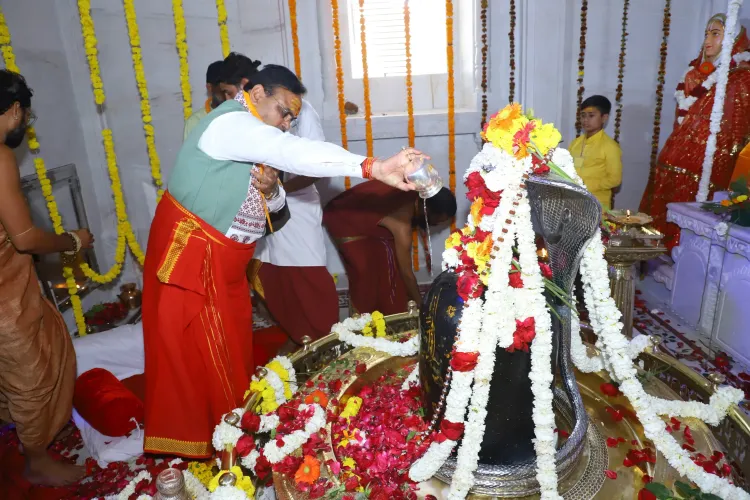
Synopsis
Key Takeaways
- Temples are crucial for preserving Indian culture.
- Rajasthan government focuses on cultural and spiritual development.
- Pashupatinath Mahadev Temple is termed the ‘Haridwar of Mewar’.
- Significant initiatives are underway for farmer empowerment.
- The government aims to create four lakh jobs in five years.
Chittorgarh/Jaipur, Feb 10 (NationPress) The Chief Minister of Rajasthan, Bhajan Lal Sharma, underscored the essential role that temples play in safeguarding Indian traditions, culture, and values. He noted that temples are not merely symbols of faith but also act as crucial hubs of social and cultural awareness.
Sharma emphasized their importance by stating that temples embody the essence of Sanatan culture, thereby fortifying India’s vibrant heritage.
The state government, he stated, is committed to promoting cultural and spiritual growth throughout Rajasthan. These comments were made during the idol consecration ceremony of Pashupatinath Mahadev Temple at Matrikundiya in Chittorgarh on Monday.
He praised Chittorgarh as a land of warriors, home to legendary figures such as Veer Maharana Pratap and Bhakt Shiromani Mirabai, while also recognizing it as a significant center of devotion and spirituality.
In congratulating the local populace on this auspicious occasion, he expressed optimism that the Shri Pashupatinath Mahadev Temple, located in Matrikundiya—known as the ‘Haridwar of Mewar’—would evolve into a pivotal center of faith, providing spiritual strength to the area.
The Chief Minister also commended Prime Minister Narendra Modi’s vision of ‘Development with Heritage’, which has propelled India’s progress while safeguarding its cultural legacy.
He attributed the transformative changes in the nation since 2014, including poverty alleviation, the fight against terrorism and Naxalism, economic advancement, and improved global standing, to the Prime Minister’s leadership.
This comprehensive approach, he asserted, has established a new standard for national development.
Reiterating the government’s commitment to creating a prosperous Rajasthan, the Chief Minister highlighted its focus on vital necessities like electricity and water.
He mentioned that initiatives such as the Eastern Rajasthan Canal Project (ERCP), the Yamuna Water Agreement, and the Dewas Project are addressing water scarcity. Simultaneously, the government is working to ensure daytime electricity supply for farmers.
Recognizing the challenges faced by the farming community, Sharma emphasized the government’s determination to empower farmers through the provision of adequate water and electricity.
He mentioned key initiatives such as the Kisan Samman Nidhi and the increase in Minimum Support Price (MSP) for wheat, which have strengthened farmers economically.
Additionally, the government aims to generate job opportunities by creating four lakh government positions within five years.
With over 50 percent of the commitments made in the Sankalp Patra already fulfilled, he reiterated the government’s resolve to honor every promise.
Earlier, the Chief Minister offered prayers for the prosperity of Rajasthan at the Tejaji Temple, Mangaleshwar Temple, and Pashupatinath Mahadev Temple.
The event was attended by Public Health Engineer Kanhaiyalal, Minister of State for Cooperation Gautam Dak, MP CP Joshi, MLAs Shrichand Kriplani, Arjunlal Jinagar, Suresh Dhakad, Chandrabhan Singh Akya, District Collector Alok Ranjan, SP Sudhir Joshi, and other dignitaries.


